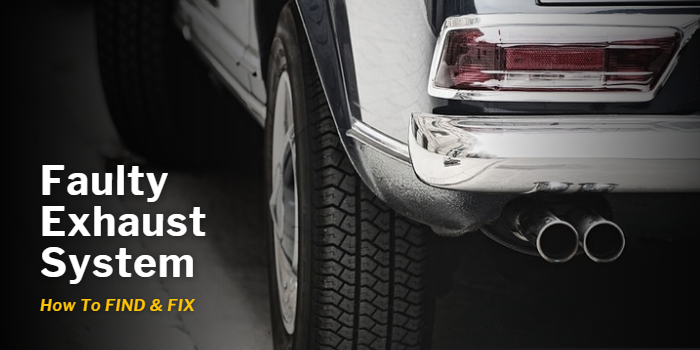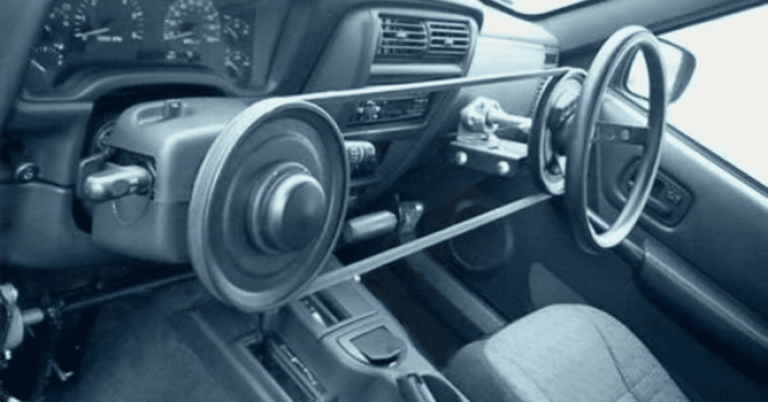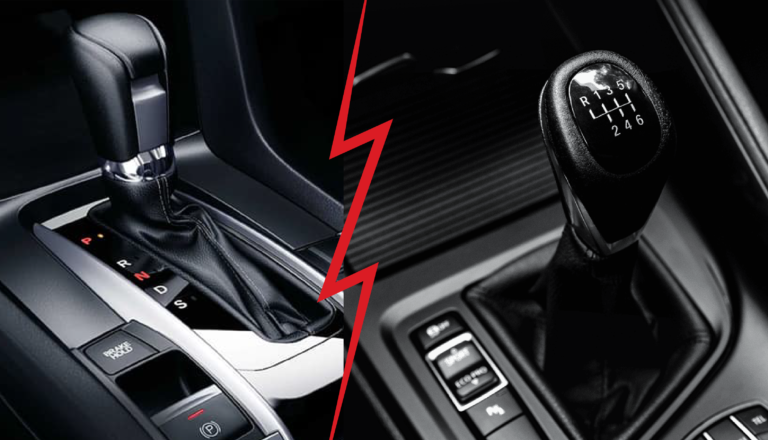
An exhaust system is a series of pipes, sensors and special components designed to expel burnt fumes from the engine’s combustion chamber. It funnels exhaust gases away from the engine while reducing the noise created by the burning of fuel in the engine. Exhaust pipes also are responsible for cleaning toxic fumes via the catalytic converter.
Exhaust systems are prone to damage because they are situated on the underside of the car body. It is important to know how to find and fix exhaust leaks when they occur. An exhaust leak can result in loud noises, vibrations, poor fuel economy and exhaust fumes entering the cabin. Exhaust pipes are prone to rust and corrosion which can lead to leaks in the system.
Have a look at Reasons to service your car on time
Main parts of an exhaust system
The major components that consist of a car’s exhaust are made of steel and aluminium. Metal is ideal for protecting the exhaust system from constant exposure to rain, road debris and other chemicals from engine oil.
Here are the parts of a typical exhaust system found on cars with an internal combustion engine.
Manifold
This is the part that exits the engine cylinders. Burnt gases from the combustion chamber flow directly into the manifold which is specially designed to allow the free flow of the exhaust fumes.
Catalytic Converter
This component contains precious metals like platinum and silver. It is used to clean toxic fumes and convert carbon monoxide, and harmful hydrocarbons into water vapour, carbon dioxide and nitrogen.
Muffler
This part consists of a resonator and expansion chamber that reduces the noise of the engine. It gets its name from the process of muffling loud noises.
Tailpipe
Connects the muffler to an exit pipe that releases the exhaust gases into the atmosphere. It is the part of the exhaust that can be seen sticking out of the rear of a vehicle, usually made from stainless steel or aluminum.
Sensors
There are oxygen sensors placed in the exhaust system that measure the amount of oxygen in the fumes. The results are sent to the ECU to adjust the air/fuel mixture in the intake.
Also Checkout The Difference Between A 2-stroke And 4-stroke Engines
How do you know your exhaust is leaking?
A leaky exhaust can have several disadvantages such as poor engine performance and increased emissions. Look out for these common symptoms of exhaust leaks and have the problem fixed as soon as possible. You can either weld and seal up leaks or have the exhaust system replaced.
Noisy engine
You will notice the engine gets really loud when accelerating if you have an exhaust leak. Expect to hear booming sounds, hissing, ticking and droning from the engine with a leaky exhaust.
Vibrations
The car may start to vibrate due to the exhaust pipe leaks. You will feel this rumble in the cabin as you drive along. Over time, the pipes may break away from their mounts and cause severe problems.
Poor fuel economy
Exhaust leaks will provide inaccurate readings on the oxygen sensor. The ECU may respond by adding more fuel through the injectors resulting in reduced fuel mileage. There will also be a drop in engine performance due to inaccurate air/fuel mixture ratios.
Fumes in the cabin
Toxic exhaust fumes may find their way into the cabin which can be a safety hazard for passengers. If you smell burning fumes or have trouble breathing while driving, then have your exhaust pipes inspected for leaks.
Carbon deposits on exhaust pipes
Leaks are usually accompanied by black soot; carbon build up and sticky burnt oil. There would also be bits of metal missing due to corrosion and rust.
Also Checkout What Is A Fuel Injection System? And It’s Purpose
Conclusion
Some of the main causes of exhaust system leaks are physical impacts from driving over speed bumps, potholes or broken tarmac. Constant heating and cooling cycles may render the metal weak and result in leaks along the exhaust pipes. In addition, the welds that hold the components together may weaken over time along with failing gaskets in the manifold and flanges.
However, if you are well informed about the symptoms of a leaky exhaust and always maintain your car in good condition, you should have no problems. Automotive maintenance is probably the easiest way to ensure you can keep driving without any hassles.
You may also want to check out some other interesting blogs on Carorbis. Have a look at The 7 Signs Of Bad Ignition Coils In An Engine and How does an emission control system work?
Frequently Asked Questions
Q1. How to Find Exhaust Leak?
Ans. A simple method to find exhaust leaks is to start the engine and spray soapy water on suspected areas. If there are leaks along the exhaust pipes, the soapy water will bubble at the leak. You can feel exhaust gas escaping from the pipes if you place your hand close to it. Exhaust leaks will make the engine sound louder and you will hear vibrations from the pipes.
Q2. What Are Exhaust Leak Causes?
Ans. Unfortunately, exhaust leaks are caused simply by driving. Exhaust pipes can get very hot with the engine running. They also cool rapidly when the engine is switched off. These constant heating and cooling cycles cause the exhaust pipes to expand and contract, eventually resulting in cracks or leaks in the pipe. Rust and corrosion are also a major causes of exhaust leaks.
Q3. What Are the Methods for Diagnosing Exhaust Leak?
Ans. Use a large set of pliers or a rubber mallet to tap suspected areas of the exhaust pipe for leaks. If it crumbles away or flexes too much, there is most likely a leak there. Look for black soot or burnt carbon deposits, it is a sure sign that exhaust gases are escaping from leaks in the pipe.
Q4. How to Fix Exhaust Leak?
Ans. If the leak is small, you can use an epoxy bond or metal sealant to cover up the leak. Another method is to use duct tape to wrap around suspected leaks in the pipe. Welding is another option. Use an aluminum patch to cover the leak in an exhaust pipe.
Q5. Are Exhaust Leaks Bad?
Ans. An exhaust leak can be a safety hazard because poisonous exhaust fumes may leak into the cabin. It also causes noise pollution. The catalytic converter may get damaged and leaks will lead to increased fuel consumption or may affect engine components in the long run.
Q6. What Are Methods for Sealing Exhaust Leaks?
Ans. Welding the leaks with an aluminum patch is the best way to seal the exhaust pipe. Before welding, use an epoxy bond to seal the pipes properly. After welding, wrap up the exhaust pipe with heat-resistant tape to keep everything together. These are only temporary fixes. You will be better off replacing the damaged exhaust pipes with a new part.
Q7. What Are the Different Types of Exhaust Leaks?
Ans. Exhaust leaks are usually found in the manifold or in the joints of the exhaust pipe leading to the catalytic converter. Exhaust pipes are made of several sections sealed together at joints using gaskets. These may break loose while driving and cause exhaust fumes to escape from leaks.
Q8. Are Car Exhaust Leaks Bad?
Ans. Exhaust leaks can lead to air pollution as the fumes cannot be treated by the catalytic converter. They also cause a drop in engine performance. Over time, they can lead to damage to engine components and other automotive sensors in the engine. Leaky exhausts are very loud and your vehicle can fail an emission test.
Q9. How to Fix Exhaust Leak at Flange?
Ans. The best way to fix an exhaust leak at the flange is to weld the joint that is broken. Flanges may have gaskets that are used to seal them and prevent exhaust fumes from leaking. Replace the gaskets and use epoxy sealant to cover any leaks at the joint.
Q10. Will Exhaust Leak Cause Loss of Power?
Ans. You may notice a lack of power with a leaky exhaust. The car will not have the same acceleration as before due to an imbalance of exhaust gas pressure that will affect the combustion process.
Q11. Will an Exhaust Leak Burn a Valve?
Ans. Valves are burnt when they do not seat properly and have unburnt gases flowing past them. A leaky exhaust has reduced back pressure and may cause fumes to run past the valves and burn them with carbon deposits.
Q12. Can Exhaust Leak Cause Misfire?
Ans. Yes, you could have an engine cylinder misfiring due to a leaky exhaust pipe. The unequal pressure in the exhaust and intake can cause the ignition system to go off timing, leading to a cylinder misfire. This reduces power in the engine.
Q13. How to Find Exhaust Leak With Seafoam?
Ans. Seafoam can be added to the petrol tank to clean the system, but it cannot directly find leaks in the exhaust system. You will have to manually inspect the exhaust system for leaks. Look for black soot deposits around the manifold and flange joints.
Q14. Why Do I Hear an Exhaust Leak Sound When Accelerating?
Ans. The volume of exhaust gases increases with acceleration. If you have an exhaust leak, this will result in a booming sound when accelerating. Listen for a loud rumble, hissing or popping sounds. These are sure indicators of an exhaust leak.
Q15. Will an Exhaust Leak Fail Inspection?
Ans. A leaky exhaust can cause air pollution because the fumes bypass the catalytic converter which is used to treat them. An exhaust leak is a source of noise pollution as well. In addition, a leaky exhaust can be a safety hazard for passengers due to toxic fumes entering the cabin. A car with a defective exhaust system will fail an inspection.
Q16. How to Patch Up an Exhaust Leak?
Ans. Although welding is the best method to patch up an exhaust leak, you can use an epoxy blend metal surface sealant to cover a leak. There is also aluminum tape that is available in sticky rolls. Use this to seal exhaust leaks temporarily. Patched-up leaks will eventually give way over time so it is best to replace the exhaust pipe.
Q17. Can Exhaust Leak Cause Car to Stall?
Ans. The engine relies on the exhaust system to expel fumes so that fresh fuel and air can enter the combustion chamber. If there is an imbalance of pressure in the exhaust system, the air-fuel mixture may get disrupted and cause a power loss, misfire or even stalling of the engine. At the very least, acceleration and performance will noticeably reduce.
Q18. Will Exhaust Leak Hurt Engine?
Ans. Exhaust leaks can cause burnt fumes to travel back into the combustion chamber which can interfere with the performance of the engine. Sensors may get damaged, in particular, oxygen sensors that are used to adjust the air-fuel mixture in the intake manifold. The catalytic converter (responsible for cleaning the toxic fumes) can get damaged as well.
Q19. Will Exhaust Leak Cause Backfire?
Ans. An exhaust leak will cause a vacuum in the engine which will sometimes result in a loud bang called a backfire. The air-fuel mixture will be in the incorrect ratio for proper combustion leading to a loss in acceleration and rough operation. Backfires can seriously damage the pistons, valves and intake system of the engine.
Q20. Can You Pass Inspection With Exhaust Leak?
Ans. Your car is unlikely to pass inspection with an exhaust leak due to increased emissions and noise pollution. A leaky exhaust can transfer toxic fumes into the cabin which is a health risk for passengers. Fuel consumption and engine performance will also be affected by a leaky exhaust pipe. Authorities may deem the car not road worthy and will it will fail the inspection.
Q21. Can Exhaust Leak Cause Hard Start?
Ans. An exhaust leak will cause the engine to choke on its own exhaust fumes. This will prove a problem with starting due to misfires, incorrect air-fuel mixture ratio, and a reverse vacuum that can cause a backfire in the combustion chamber. The car will struggle to start in one go and you risk damaging the engine.
Q22. Will Exhaust Leak Cause Check Engine Light?
Ans. An engine check light will be triggered by an exhaust leak. The oxygen sensor in the exhaust system will start to malfunction due to the high concentration of burnt fumes in the manifold. This will send a signal to the ECU triggering a check engine warning light on your instrument cluster.










